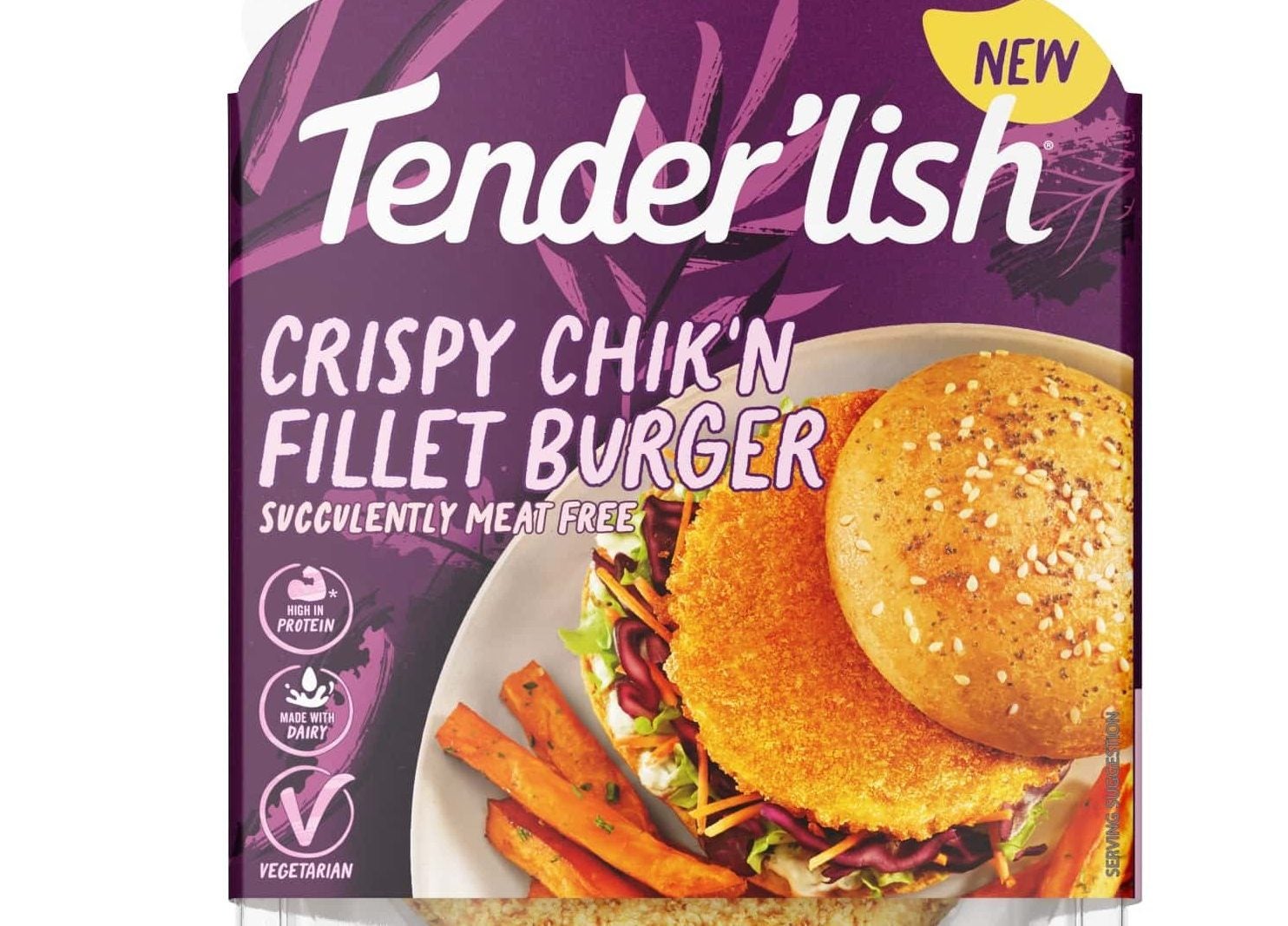
FrieslandCampina sees the launch of the Tender’lish alt-chicken brand in the UK as a “strategic play” to drive longer-term growth in the country for the Dutch dairy giant.
Upon the introduction of four Tender’lish meat-free products in October, the brand will become the third from FrieslandCampina to be marketed in the country, joining the Yazoo and Chocomel milk drink lines.

Discover B2B Marketing That Performs
Combine business intelligence and editorial excellence to reach engaged professionals across 36 leading media platforms.
The cooperative is not new to the meat-free category. FrieslandCampina launched the Valess line in 2005, first in the Netherlands, followed by Germany and Belgium. The same brand is now being brought to the UK as Tender’lish, breaded chicken alternatives featuring 60% skimmed milk as the protein source.
“Our USP is the taste, which is delivered by the unique dairy base in our product – that is a differentiator,” Alison Lees, the UK head of marketing for Tender’lish, told Just Food.
“The business in the UK started to turn its attention to what other brands exist within the European portfolio that could be used strategically to drive long-term growth in the business. It’s not a tactical launch for FrieslandCampina, it’s very much a strategic investment for future growth.”
FrieslandCampina has one major UK supermarket chain already lined up, Lees said, declining to reveal the target value for sales. Other retailers are expected to come on stream in 2024 with foodservice also on the horizon, along with a “strong pipeline” of additional Tender’lish products early in the new year.

US Tariffs are shifting - will you react or anticipate?
Don’t let policy changes catch you off guard. Stay proactive with real-time data and expert analysis.
By GlobalData“This is just the very start,” she emphasised, noting the existing range features in McDonald’s fast-food chains in Europe.
Despite the challenges for some businesses in the UK meat-alternatives category, Lees suggests there is still growth to go after.
“It’s having a few challenges but there are still millions of people buying into meat-free and it’s still up versus say five years ago. The market has grown consistently double-digits,” she explained.
“It’s not a surprise that there has been a slowdown but there’s still plenty of growth to go for. One of the under-tapped areas within meat alternatives is definitely the chicken alternative.”
Lees, who was once marketing manager at Ireland-based Kerry Group when it launched the Naked Glory meat-free brand, said FrieslandCampina produces the milk component while a third-party manufacturer forms, breads and packages the Tender’lish products.
“It’s processed in a way that turns the milk into a semi-solid liquid like a curd. Then we add sodium alginate, which is, for want of a better word, a type of seaweed common in many of the meat-alternative brands,” she said.
“That seaweed gives it a texture, which is fibrous and really replicates the pool of individual fibres in a chicken piece.”
In terms of the target audience for Tender’lish, Lees suggests families with children under 16 are “under-indexed” when it comes to meat-free sales, “whether that is due to a concern that kids won’t like the taste of the product, or a concern around the nutritional value, what’s in it, how it’s made, et cetera”.
She adds: “We believe that dairy is well-recognised by consumers, it’s healthy and nourishing. It can attract the attention of consumers, who potentially for families, may have shied away from meat alternatives in the past.”





